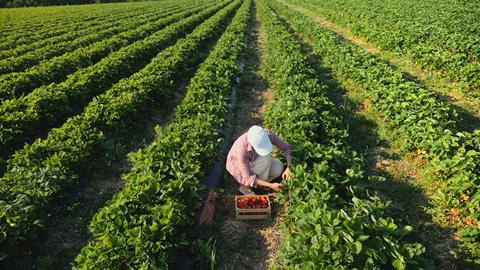Farm assurance solutions can simplify the certification process for producers around the world

Certification should be straightforward and streamlined and should bring recognition to the hard-working farmers that keep fresh produce on our table. It shouldn’t make their demanding jobs harder than they already are.
Fruit growers today face a daunting gauntlet of drought and climate change, tight markets, and increasingly complex government regulations. Growers are additionally expected to meet an expanding number of regulations and certifications for food safety, environmental protection, labour rights, water use, and so on, before they can gain access to an already competitive market.
As the time commitments and financial burdens imposed by these additional certifications become increasingly onerous, growers are asking whether less burdensome certification options exist that can truly benefit them while still satisfying the supply chain’s demands for transparency and assurance of responsible farming.
Smart farm assurance solutions can be the answer to tackle increasing challenges for farmers around the world.
Farmers benefit when certification makes their hard work visible to consumers
In today’s global economy, consumers who live far from the source of the food at their local supermarket seek assurance that the food is safe to eat and that it was responsibly produced. Credible certification can provide this assurance in terms of food safety, environmental protection, water conservation, fair labour practices, and so on.
Producers certified under trusted farm assurance solutions like those offered by GlobalGAP can secure access to the supply chain and offer responsibly produced goods, which are more desirable to the supply chain and, ultimately, to consumers. As a side benefit, many growers find that the knowledge they gain when implementing the science-backed field-tested practices embodied in these standards helps them farm more efficiently, growing better-quality products with less waste and lower input costs.
Also, certification solutions can reach beyond the supply chain directly to the consumer through consumer labels such as the GGN label. Found in supermarkets on select items produced under specific standards, the consumer-facing label brings consumers face-to-face with producers when they enter the label’s 13-digit tracking code into the label portal. Putting a face to a product gives conscientious producers the recognition they deserve for their responsible farming practices.
Simplifying the compliance process for overburdened fruit growers and smallholders
A certification scheme like GlobalGAP offers internationally recognised standard solutions that actively seek to streamline and simplify the compliance process for fruit growers around the world. For instance, their standard for fruit and vegetable farms can be combined with additional modules focusing on specific production aspects, such as labour considerations or water conditions or additional customer-specific requirements. This approach reduces audit duplication, simplifies the certification process, and lowers costs to meet market demands for producers around the world: regardless diverse production situations and conditions.
Under certain conditions, individual producers and smallholders who find certification financially prohibitive can formalize a group together with other growers and receive group certification, efficiently using resources to reduce the financial burden of certification.
Besides, group certification encourages collaboration and knowledge sharing among smallholders. By working together to meet certification standards, producers can learn from each other, improve their practices, and build up their capacity. This collective approach can lead to long-term sustainability and growth for smallholder farmers.
Solutions driven by producers and industry stakeholders
Rather than implementing a heavy-handed top-down approach when developing or updating voluntary standards, GlobalGAP instead actively seeks input from all stakeholders, and specifically also producers, through public consultations. Producers can make specific contributions from their area of expertise, shaping standards with their valuable field-level insights.
Technical committees and focus groups lend further balance and perspective in the standard-setting process, ultimately crafting solutions that will reflect the latest best practices for responsible farming. In addition to scientific expertise, the standard setting also involves food retailers, NGOs, agricultural suppliers, certification bodies and associations in the process. This ensures that the certification process that farmers undergo counts on robust standards and a reliable system behind it.
GlobalGAP core and add-on standards are driven by our stakeholders around the world, and therefore reflect both market needs and the daily realities of producers on the ground.
Our farm assurance solutions are developed according to four key principles: widespread participation, scientific expertise, harmonisation, and continuous improvement. This approach ensures that we continue to innovate in collaboration with stakeholders, involving all participants in the value chain to create robust, realistic, and cost-efficient farm assurance solutions.
Dr Elmé Coetzer-Boersma is managing director of GlobalGAP



